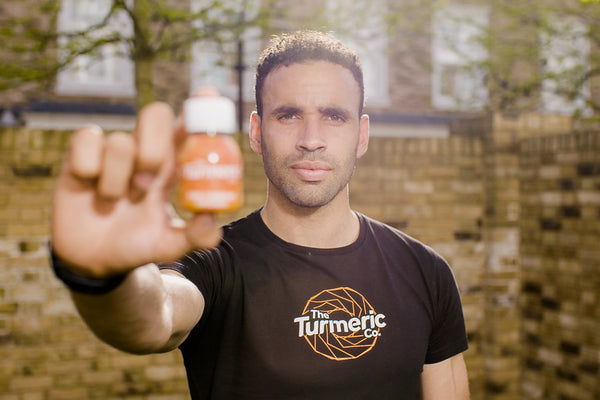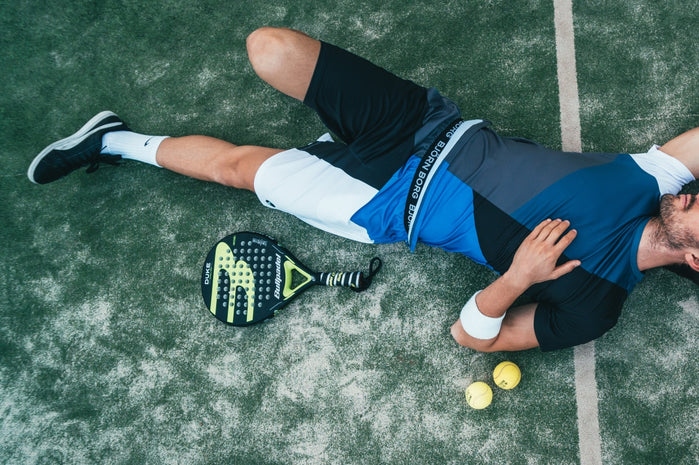What Causes Fatigue During Exercise?
Whether you’re struggling to finish your squats on leg day, or your breezy 5km run suddenly feels like a marathon – there are a number of reasons why you might be getting tired quickly during exercise. From dehydration to skipping those all-important rest days, mid-workout fatigue can quickly creep up on you and leave you feeling frustrated and unmotivated.
However, once you’ve identified the cause of your fatigue, we’ve got the solutions to get you back on track and feeling your best.
Your Diet is Lacking
Whether your diet is filled with more sweets and chocolate than fruit and veg, you’re not eating enough calories to sustain your activity levels, or you’re simply not consuming your food at the right times to fuel your workout – your diet plays a big role in preventing you from getting tired quickly during exercise.
You’re not Eating Enough Carbohydrates
Although it might be on-trend to skip the carbs in favour of a high fat, high protein alternative, it won’t be doing you any favours in the gym. Carbohydrates are your body’s preferred energy source, so if you’re skipping the bread in favour of another protein shake then that could be the reason why your muscles fatigue quickly during exercise.
Think of it like this – if you didn’t put enough fuel in your car for your journey, you wouldn’t expect to get from A-B without any problems, so why would you expect your body to be any different?

As a rule of thumb, you should be consuming about 0.25-0.5g of carbs per kg of bodyweight around three hours before training. Focus on slow-release carbohydrates such as brown rice or oats to give you a sustainable source of energy.
If you’ve not got time for a meal before your workout, then opt for some simple carbohydrates like a banana 30 minutes before you train to give you that boost you need.
However, if you’re still set on keeping your carb intake low, then switching to low-impact exercise will help to preserve your energy during workouts to help prevent you from getting tired mid-workout.
Your Pre-Workout Food Timings are Off
As we touched on earlier, it’s important to make sure you’re eating something before your workout in order to give your body the energy it needs to perform. However, your food timings are just as important as what you’re eating.
Eat too close to your workout and you risk feeling sluggish during your workout, as your body will divert the blood supply needed for digestion to your muscles. Not only does this mean that the food you’ve eaten won’t be broken down into glucose for energy in time for your workout, but it will leave you feeling lethargic and nauseous, which isn’t ideal when you’re trying to get in those PBs.
However, if you leave too much of a gap between your last meal and your workout, then you risk feeling dizzy and fatigued during your workout.
To make sure you’re fuelled up, you should aim to eat a small meal around three hours before your workout or a small snack around one hour before - and no less than 30 minutes - to give you the energy you need.
Your H20 Levels Might Be Low
If you’ve got your pre-workout meal timings down to a tee but you’re still getting tired easily during exercise, then dehydration might be to blame.
Dehydration decreases your blood volume, meaning your heart has to work harder to get it pumping to deliver nutrients and oxygen to the muscles being used during your workout. Additionally, if you’re exercising on a hot day or taking part in a sweaty HIIT session, then you’ll lose even more fluids in your sweat, leaving you feeling lethargic and preventing you from finishing your workout.

Aim to drink water consistently throughout the day and top up with around 500ml around two hours before your workout to make sure you’re fully hydrated. It’s just as important to make sure you’re staying hydrated during your exercise session too, so make sure you’re taking regular sips of water throughout to fight off that mid-workout fatigue.
You're Not Resting Between Training
If you’re looking to smash those PBs, you might think training every day is the way to go. However, overtraining and under-recovery can actually hinder your progress, causing your muscles to fatigue quickly during exercise and prevent you from applying progressive overload.
A rest day allows your muscles to recover from the exercise you’ve been doing, meaning you can come back stronger each time. A rest day should never be considered as an optional part of an exercise regime, so you should aim to schedule in at least two rest days per week depending on your exercise intensity.
Sleep Eludes You
If you’ve noticed that you’re getting tired quickly during exercise, it might be because of a lack of sleep. Whether you’ve been burning the candle at both ends, or you find yourself lying awake at night thinking about your to-do list for the next day - a lack of quality sleep can have a huge impact on your energy levels during exercise.
When you’re sleeping, your body produces the growth hormone that’s essential for muscle recovery. Not only is it important for recovery, but if you’re not getting the recommended 7-9 hours of sleep per night, you’ll find yourself lacking in energy during your workouts and unable to push yourself to your maximum capacity. So if you’ve noticed your energy levels slipping during exercise, then getting a few extra hours of shut-eye might just be the solution.
You Are Pushing Yourself too Hard
When it comes to exercise, it’s a marathon, not a sprint. Whether you’ve just started out or you’ve been training in your chosen sport for years – it’s important to view it as a lifestyle rather than a quick sprint towards your goals.
If you’ve noticed that your muscles tire quickly during exercise, it might be because you’ve been pushing yourself too hard too soon. Whether you tried to run a 10k before you could comfortably run 5k, or you’re increasing your weights in huge increments at the gym – pushing yourself too hard might just be the reason why you’re getting tired quickly during exercise.

Instead of adding on those extra kilometres or kilograms, aim for a progressive overload each session. From adding a small amount of weight each time, to increasing your reps – progressive overload will help to prevent injury, improve fitness and prevent unnecessary fatigue, allowing you to reach your athletic goals.
You’re Stressed Out
Working out puts stress on your body, increasing your cortisol levels. Although a long run or hard gym session might be a great way to blow off steam, if you’re already stressed out then you might find yourself unable to complete a workout.
Studies have shown that stress and mental fatigue can have a huge impact on physical performance. This is because both your muscles and cognition are controlled by a part of your brain called the anterior cingulate cortex, so if that’s already fatigued before you begin a workout, then you’ll probably notice that your muscles tire quickly during exercise too.
This isn’t to say you should skip a workout after a stressful day at work, but if you’re feeling chronically stressed then it might be time to skip the weights in favour of a yoga session.
From a lack of proper nutrition, to pushing yourself too hard during exercise, it can be difficult to pinpoint the exact reason why you’re getting tired quickly during exercise. Whether you schedule in a few extra rest days each week, or simply make sure you have a carbohydrate-rich pre-workout snack – you’re sure to notice an improvement in your workouts in no time.

The Hal Robson-Kanu Guide To Fitness & Nutrition
Gain exclusive insight into habits that will make every day a healthy and fulfilling one.













